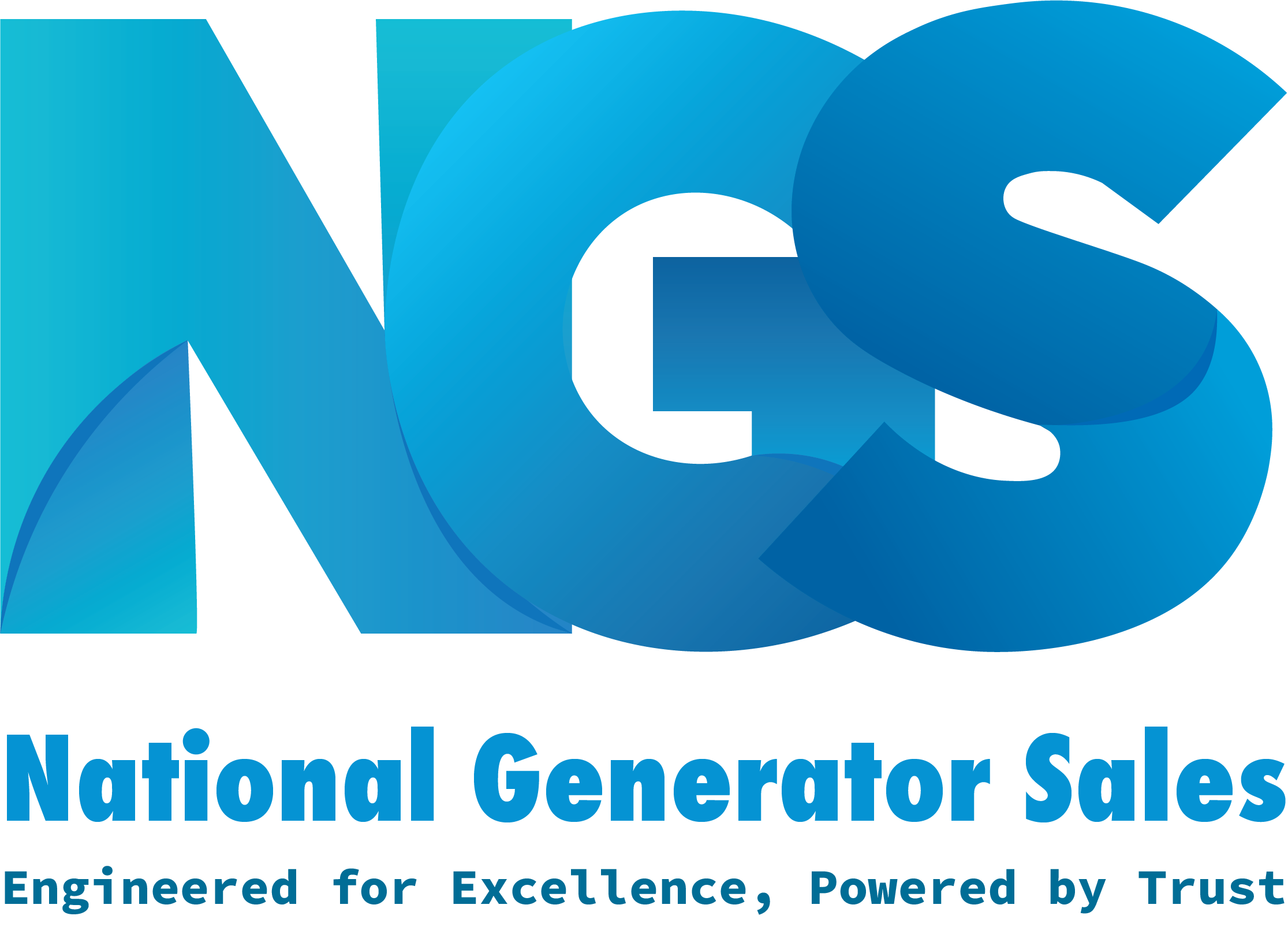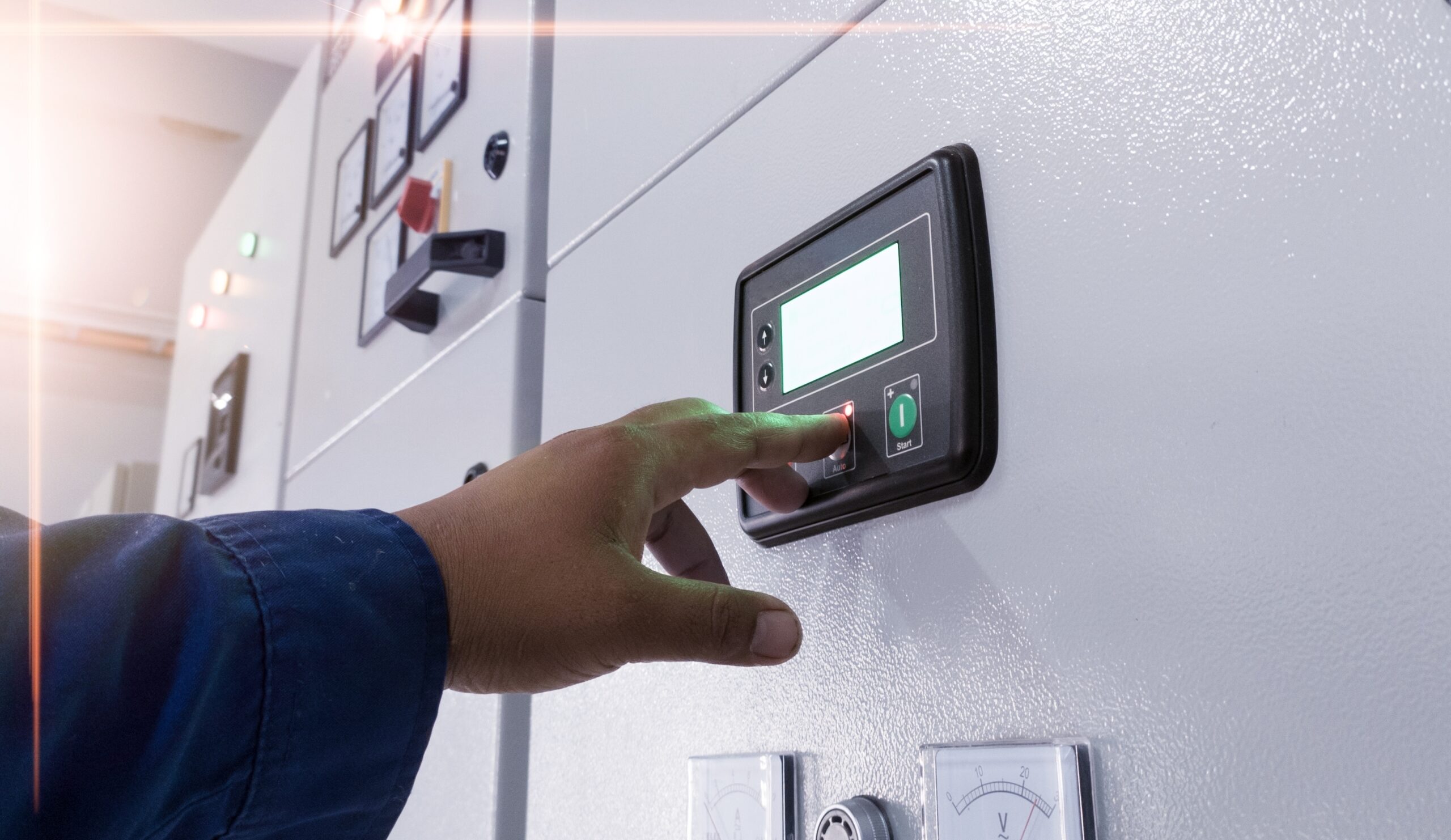When it comes to power generation, safety should always be the top priority. Whether you’re relying on a generator for emergency backup during outages or for regular power supply in remote locations, understanding how to use and maintain your generator safely is crucial. National Generator Sales, with over 45 years of expertise in delivering high-quality power solutions across the UK, is here to help you stay informed and protected.
At National Generator Sales, we provide a range of advanced generator products tailored to meet the needs of diverse industries and clients. We are perfectly positioned to offer efficient, reliable, and customised power generation services. In this blog post, we’ll walk you through essential generator safety tips, signs that your generator may be unsafe, and why prioritising generator safety is vital for you and your surroundings. Get in touch with us today for more information!
Generator Safety Tips – What You Need to Know
Generators can be lifesavers during power outages, but they can also pose serious risks if not handled properly. From carbon monoxide poisoning to fire hazards, the dangers associated with generators should never be underestimated. Here’s what you need to know to keep yourself, your family, or your workplace safe.
Location is Everything
Always place your generator outdoors in a well-ventilated area, away from doors, windows, and vents. Generators emit carbon monoxide, an odourless, colourless gas that can be deadly. Never run a generator inside your home, garage, basement, or any enclosed space, even if windows and doors are open. Positioning your generator in an open area not only ensures adequate airflow but also reduces the risk of fumes accumulating. Remember, even small amounts of carbon monoxide can cause serious health problems or be fatal.
Proper Fuel Handling
Only use the type of fuel recommended by the manufacturer. Store fuel in approved containers and keep it away from living areas. Always refuel your generator when it is completely cooled down to avoid flare-ups or explosions caused by hot engines or exhaust parts. Be mindful to clean up any fuel spills immediately and never smoke or use open flames near fuel storage or during refuelling. Proper fuel management not only prevents fire hazards but also prolongs the life of your generator.
Electrical Safety
Ensure your generator is properly grounded to reduce the risk of electric shock. Use heavy-duty extension cords rated for outdoor use and the electrical load of your generator. Avoid overloading the generator by calculating the total wattage of the appliances you intend to power. Overloading can cause damage to the generator and connected devices. Always inspect cords for damage before use, and never plug your generator directly into a household outlet without a qualified electrician installing the appropriate transfer switch. Taking these precautions protects both you and your equipment from dangerous electrical faults.
Regular Maintenance Checks
Routine maintenance is key to safe operation. Check oil levels, air filters, spark plugs, and fuel lines regularly. Follow the manufacturer’s maintenance schedule strictly. Neglecting maintenance can cause mechanical failure and increase the risk of hazards. Scheduling professional servicing at least annually will help catch issues early and keep your generator running smoothly. A well-maintained generator is more efficient, safer, and less likely to fail when you need it most.
Use Transfer Switches
If your generator powers your home’s electrical system, always install a transfer switch. This prevents backfeeding, which occurs when electricity flows back into power lines during an outage, endangering utility workers and damaging your generator. Transfer switches also allow you to safely power selected circuits in your home without manually unplugging appliances. Investing in this device not only safeguards lives but ensures compliance with electrical safety regulations.
Noise and Exhaust Awareness
Keep your generator away from neighbours to reduce noise pollution, and position exhaust outlets away from areas where people gather. Use sound barriers if necessary to comply with local noise regulations. Excessive noise can cause disturbance and complaints, so planning generator placement thoughtfully respects your community. Additionally, directing exhaust away from any occupied spaces helps prevent the buildup of harmful fumes.
Fire Extinguisher Readiness
Always have a fire extinguisher nearby, specifically rated for electrical and fuel fires. Knowing how to use it can save lives and property in case of an emergency. Regularly check the extinguisher’s pressure gauge and expiry date to ensure it’s functional when needed. Training everyone around the generator on how to respond quickly to a fire hazard can make all the difference in a crisis.
Secure the Generator
Prevent theft and tampering by securing your generator with locks or chains, especially if it is stored outdoors or in an accessible area. Consider installing a protective enclosure or alarm system for added security. Theft not only leads to financial loss but also risks unsafe use by unauthorised individuals. Keeping your generator secure helps protect your investment and community safety.
Training and Information
Make sure everyone who operates or is near the generator knows how to use it safely and understands emergency procedures. Clear signage with safety instructions is a helpful reminder. Providing practical training and safety drills can enhance confidence and reduce mistakes during emergencies. Well-informed users are less likely to cause accidents or misuse the equipment.
Keep Children and Pets Away
Generators should be kept out of reach of children and pets to prevent accidents or injuries. Secure the area around your generator with barriers or fencing if necessary. Curious children or animals can be seriously harmed by moving parts, electrical shocks, or fuel exposure. Vigilance in this area is essential for household safety.
By following these tips, you significantly reduce the risk of accidents and ensure your generator provides safe, reliable power when you need it most. Prioritising these safety measures protects not only your property and equipment but also the well-being of those around you. Safe operation is key to enjoying the full benefits of your generator without worry or incident.
Signs Your Generator Is Unsafe
Identifying early warning signs of generator issues can prevent serious accidents. Here are some red flags to watch out for:
- Unusual Smells: A strong smell of fuel or burning may indicate leaks or overheating.
- Excessive Noise: Loud or irregular noises might signal mechanical problems.
- Smoke Emission: Thick or coloured smoke from the exhaust can point to engine trouble.
- Difficulty Starting: Struggling to start or frequent stalling may mean internal faults.
- Oil Leaks: Visible oil puddles under the generator indicate leaks that need urgent attention.
- Overheating: If the generator feels excessively hot or shuts down unexpectedly, this is a sign of malfunction.
- Power Fluctuations: Flickering lights or inconsistent power delivery to appliances suggest electrical faults.
- Damaged Cables or Connectors: Frayed or exposed wires can be hazardous and should be replaced immediately.
- Unusual Vibrations: Excessive shaking during operation might reflect mechanical wear or loose components.
- Faulty Gauges or Indicators: Incorrect readings from fuel, oil, or temperature gauges can mislead you about the generator’s condition.
If you notice any of these signs, stop using the generator and seek professional inspection and repair without delay.
The Importance of Generator Safety
Generator safety is not merely a recommendation; it’s a necessity. Improper use or maintenance can lead to severe consequences, including injury, property damage, or even fatal incidents. Here’s why generator safety matters:
Protects Lives
Carbon monoxide poisoning from generators causes hundreds of deaths worldwide annually. Ensuring proper ventilation and operation can save lives. Taking simple precautions, such as placing generators outdoors and installing carbon monoxide detectors, further safeguards your household or workplace.
Prevents Property Damage
Generators are powerful machines capable of causing fires or electrical damage if misused. Safe practices help avoid costly repairs and loss. Investing time in proper setup and routine checks can prevent devastating fires and electrical faults that may otherwise devastate homes or businesses.
Ensures Reliable Power Supply
Well-maintained and safely operated generators run more efficiently and are less likely to break down when needed most. Regular attention to maintenance details also improves fuel efficiency and reduces emissions, making your generator more environmentally friendly and cost-effective.
Complies with Legal Regulations
Many regions have strict rules about generator use, including noise restrictions and electrical standards. Staying compliant avoids fines and legal trouble. Awareness of local laws and working with certified professionals ensures your generator installation meets all safety and legal requirements.
Safeguards Emergency Services
Using transfer switches prevents dangerous backfeed situations that can injure utility workers during outages. It also allows emergency responders to work more safely and efficiently, reducing the risk of accidents during critical times.
Promotes Environmental Responsibility
Proper fuel storage and handling reduce the risk of spills and environmental contamination. Additionally, choosing cleaner fuel options and maintaining the generator can help minimise harmful emissions and protect local ecosystems.
Builds Peace of Mind
Knowing your generator is safe allows you to focus on your work, family, or emergency response without unnecessary worry. This confidence helps you better manage emergencies and daily activities, knowing your power supply is secure.
Enhances Equipment Longevity
Routine safety checks and maintenance extend the lifespan of your generator, protecting your investment. Well-maintained equipment also retains higher resale value and performs more reliably throughout its operational life.
Supports Community Wellbeing
Minimising noise and pollution protects neighbours and local ecosystems. Being considerate about generator placement and operation fosters good community relations and supports a healthier living environment for all.
Encourages Best Practices
When everyone using generators follows safety protocols, the entire community benefits from fewer accidents and disruptions. This collective responsibility raises awareness and creates a culture of safety around power generation.
Ultimately, generator safety is about protecting people, property, and the environment while ensuring dependable power when you need it. Prioritising these practices today leads to safer, more efficient power solutions tomorrow.
In Conclusion: Power Up Safely with National Generator Sales
Power is essential, but safe power is indispensable. At National Generator Sales, we’re committed to helping you harness reliable electricity without compromising safety. With our 45+ years of industry experience and a strategic location near London and Cambridge, we offer bespoke solutions tailored to your specific needs. Whether you require emergency backup, industrial power, or bespoke generator installations, we’ll work with you to ensure your power supply is uninterrupted and safe.
Invest in safety today to secure your peace of mind tomorrow. Explore our range of high-quality, advanced generators and contact us for a consultation and let us power your future safely.
FAQs
1. Can I use my generator indoors?
No, generators should always be operated outdoors in well-ventilated areas to avoid carbon monoxide poisoning.
2. How often should I service my generator?
Follow the manufacturer’s guidelines, but typically every 6 months or after every 100 hours of use.
3. What type of fuel should I use?
Use the fuel type recommended by your generator’s manufacturer, usually petrol, diesel, or propane.
4. Is it safe to store fuel indoors?
No, store fuel in approved containers in a cool, well-ventilated outdoor area away from living spaces.
5. What is a transfer switch, and why do I need one?
A transfer switch safely connects your generator to your home’s electrical system, preventing dangerous backfeed to power lines.
6. Can I overload my generator?
No, overloading can cause damage and pose safety risks. Always calculate your power needs and choose an appropriate generator size.
7. What should I do if my generator emits smoke?
Stop using it immediately and have it inspected by a professional.
8. How do I prevent theft of my generator?
Secure your generator with locks, chains, or in a locked enclosure.
9. Can I run my generator in the rain?
Only if it’s designed for outdoor use and properly sheltered from direct exposure to water.
10. What safety equipment should I have nearby?
Keep a fire extinguisher rated for electrical and fuel fires nearby and ensure users know how to use it.
Ready to ensure safe, reliable power for your home or business? Contact National Generator Sales today and let our experts guide you through selecting, installing, and maintaining the perfect generator for your needs. Your safety is our priority.




